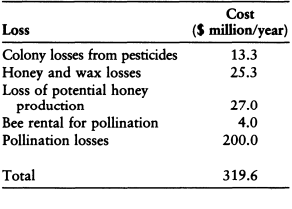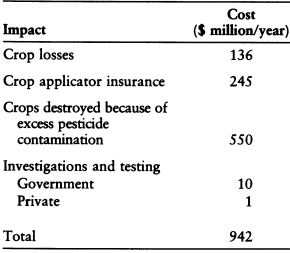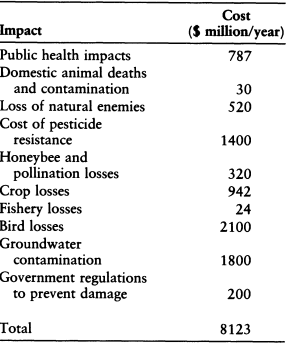Genetically Modified Food: Risks & Benefits. Does the Good Outweigh the Bad?
Abstract
Today, when grocery shopping, it is much more common to find genetically modified foods than organic foods. It makes people question why foods are even genetically modified. Genetically modified foods are created for numerous reasons. Some being greater crop yield, more nutritious food, resistance to insect damage, etc. While GM foods come with their benefits, many believe that consuming them may be harmful and can lead to medical issues such as an increase in infertility, allergies, a higher risk of cancer, etc. This lab report will discuss why genetically modified foods are engineered, the benefits they provide, and some risks or dangers associated with the production and consumption of GM foods.
Introduction
Many believe that GM foods are not nearly as nutritious as their organic counterparts. But, people are often unaware of the fact that genetic modification actually occurs naturally. It allows for the transfer of genetics between different species. The transfer of genes allows for better digestion, crop resistance to pests, etc. But, this natural type of genetic modification occurs randomly whereas other types of genetic modification are purposely created for a variety of reasons (Jones,1999). Initially, farmers began genetically modifying crops so they can survive harsh weather, pests, diseases, pesticides, and other chemical treatments. This leads to greater crop yield which then leads to greater profit and lower cost for food. But, there are many concerns surrounding GM foods. 1. Are GM foods as nutritious as organic foods? 2. Do genetically modified foods affect human health negatively? 3. Do GM foods pose a risk to the environment?
Materials and Methods
- GM Food Fed to Rats
There have not been many studies conducted on the effects of GM foods on human health, but there have been studies held on rats. A study was conducted by Caen University in France where rats were either fed GM corn, GM corn sprayed with Roundup, and water including doses of Roundup. The control group, on the other hand, was fed non-GMO foods, also excluding Roundup (Poulter, 2012).
- Nutrition
Many people have different opinions regarding the nutrition of genetically modified food versus organic food. Some believe that genetically modified foods provide more nutrients, others believe that organic foods are healthier, and lastly, many believe that there is no difference between the two. In 2012, a group of Stanford researchers held a four-year study where they analyzed 240 papers related to organic foods and conventional foods (Bravata, 2012).
- Pesticides & the Environment
Genetically modified crops are designed to endure pesticides and herbicides which are meant to eliminate weeds and pests. But, since farmers constantly spray them with these chemicals, the weeds and pests eventually become resistant to them. This results in farmers using even more of these chemicals including harsher ones (Nagele, 2017). Not only does this lead to an increased reliance on pesticides, but it also alters soil bacteria and attracts new pests (Nagele, 2017). Some effects that these pesticides have on the environment include bee poisoning and reduced pollination, crop losses, water contamination, fishery losses, and bird losses (Pimentel, 1992).
Results
- GM Food Fed to Rats
50-80% of the female rats developed tumors after 24 months while 30% of the rats in the control group developed tumors. 70% of the female rats died while only 20% in the control group died. The rats that were fed GM foods had tumors that were 2-3 times larger than the tumors of the control group (Poutler, 2012).
- Nutrition
This study revealed that there were no significant differences between the nutrients provided by GM foods vs organic foods. Therefore, there is no difference in their nutritional value. But, the results may not be fully accurate since this is something that has not really been tested.
- Pesticides & the Environment
Based on the data, up to $319.6 million are lost per year due to pesticides poisoning bees and reducing pollination (Pimentel, 1992). Around $942 million is lost every year because of crop loss caused by damage from pesticides (Pimentel, 1992). As for pesticide-contaminated water, $1.8 billion is spent yearly to monitor and clean the water. Approximately 6-14 million fish are killed per year due to pesticides which calculate to about $10-24 million worth of fish (Pimentel, 1992). Lastly, wild birds are also harmed by pesticides (Pimentel, 1992). In the United States, the amount of bird loss due to pesticides adds up to about $2.1 billion a year (Pimentel, 1992).
Table 1:

Table 1: Estimated honey bee losses and pollination losses from wild bees and honeybees.
Table 2:

Table 3

Discussion
Overall, the results revealed that genetically modified food may be harmful to human health and the environment. But, this could be due to the constant spraying of pesticides which was proved to be harmful to the environment (Study 3). Since there has not been enough research held on the effects of genetically modified foods, it is not possible to determine whether they are actually dangerous to humans. In the first study with the rats, the group that consumed GM foods grew larger tumors and died earlier, but other scientists who viewed the study believed that there should have been more rats included and that tumors were bound to occur in rats (Poutler, 2012). In the second study, where the nutrition of organic foods compared to GM foods was studied, it was revealed that they had no significant differences. But, this is also something that needs to be studied long-term. Lastly, when it comes to pesticides’ effect on the environment, it is clear that they can be harmful. Pesticides poison and kill bees, fish, birds, etc. which are essential to the environment. But, the researchers also stated that the data was scarce and that their results were not fully complete (Pimentel, 1992).
All three studies could not evaluate the true effects of genetically modified foods. This is because there has not been much research done on the topic. For more accurate and reliable results, these studies need to be held long-term. Therefore, whether one should consume GM food or organic food is fully up to them. But, people should consider the fact that the pesticides sprayed on genetically modified foods are harmful to the environment and possibly even humans.
Appendix
Roundup – a chemical designed to kill weeds
GM – genetically modified
References
Bravata, Dena M. “Are Organic Foods Safer or Healthier than Conventional Alternatives?: a Systematic Review.” Annals of Internal Medicine, U.S. National Library of Medicine, 2 Oct. 2012, pubmed.ncbi.nlm.nih.gov/22944875/.
Jones, Leighton. “Genetically modified foods.” British Medical Journal, vol. 318, no. 7183, 1999, p. 581. Gale Academic OneFile, link.gale.com/apps/doc/A54175903/AONE?u=cuny_ccny&sid=AONE&xid=fc25afaf.
Negele, Robin M. “Keeping Consumers In The Dark: How The National Bioengineered Food Disclosure Standard Threatens Transparency And Food Security.” Gale Academic, American Bar Association, 2017, go-gale-com.ccny-proxy1.libr.ccny.cuny.edu/ps/i.do?p=AONE&u=cuny_ccny&id=GALE%7CA517345669&v=2.1&it=r&sid=AONE&asid=890df719.
Pimentel, David. “Environmental and Economic Costs of Pesticide Use.” BioScience, Oxford University Press, Nov. 1992. Poulter, Sean. “Cancer Row over GM Foods as French Study Claims It Did THIS to Rats… and Can Cause Organ Damage and Early Death in Humans.” Daily Mail Online, Associated Newspapers, 20 Sept. 2012, www.dailymail.co.uk/sciencetech/article-2205509/Cancer-row-GM-foods-French-study-claims-did-THIS-rats–cause-organ-damage-early-death-humans.html?openGraphAuthor=%2Fhome%2Fsearch.html%3Fs%3D%26authornamef%3DSean%2BPoulter.

